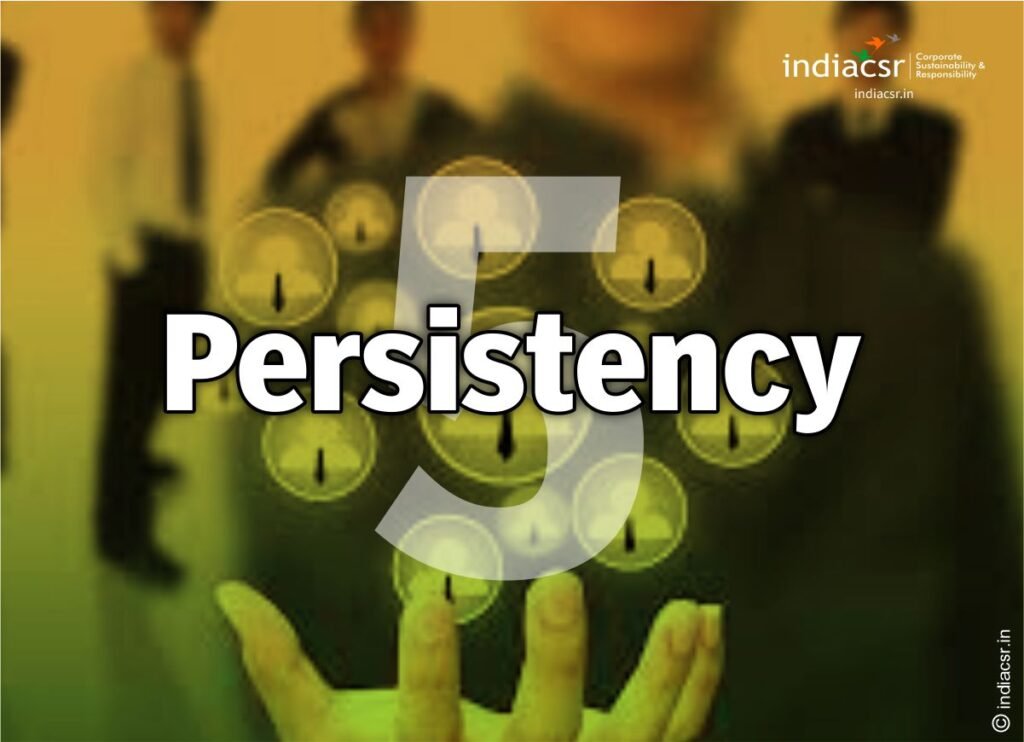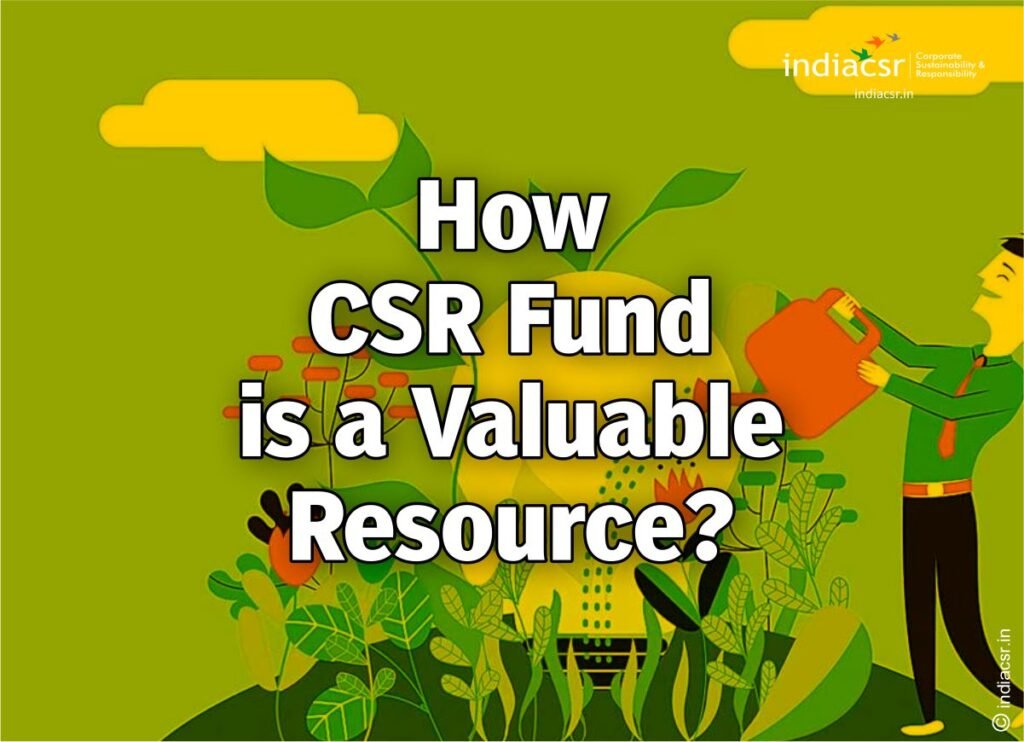Obtaining and Strategizing CSR Funds for NGOs, here Top 10 Practical Tips are Unveiled
Corporate Social Responsibility (CSR) is a commitment by businesses to contribute to the social and environmental well-being of the communities in which they operate. CSR can take many forms, including philanthropy, volunteering, and environmental initiatives. One way that businesses can support CSR is by providing funding to NGOs. NGOs are non-profit organizations that work to address social and environmental issues. By providing funding to NGOs, businesses can help to make a real difference in the world.
In the arena of philanthropy, effective fundraising and strategic planning are key for NGOs to sustain their efforts and create meaningful impact. With the advent of Corporate Social Responsibility (CSR) initiatives, there lies an untapped potential for NGOs to secure crucial funding.
In this guide, we present “CSR Funds for NGOs: How to Get, How to Plan,” offering the top 10 practical tips to help NGOs navigate the process of securing CSR funding, effectively utilizing it, and enhancing their capabilities to make a difference.

What is CSR Fund?
CSR Fund is a term used to refer to the funds that are provided by companies for social development projects under the Corporate Social Responsibility (CSR) policy. CSR is a mandatory provision under the Companies Act, 2013, which requires companies with a net worth of rupees 500 Crores or more, or turnover of rupees 1000 thousand Crores or more, or net profit of rupees 5 Crores or more, to spend at least 2% of their average net profits on CSR activities.
CSR funding is a grant process under which non-profit organizations can get financial as well as other support from the corporate players for various causes such as education, health, environment, women empowerment, etc. CSR funding agencies are the entities that facilitate the CSR funding process by connecting the companies with the eligible NGOs and monitoring the implementation and impact of the CSR projects.
A CSR fund is a type of fund that is used to support corporate social responsibility (CSR) initiatives. CSR initiatives are programs or projects that businesses undertake to benefit society.
CSR funds can be used to support a wide range of CSR initiatives, such as:
Environmental protection, Education, Healthcare, Poverty alleviation, Disaster relief and Social justice, etc.
- CSR funds can be funded by businesses, individuals, or foundations. Businesses may choose to fund CSR funds as a way to give back to the community, improve their public image, or meet regulatory requirements. Individuals and foundations may choose to fund CSR funds as a way to support causes that they care about.
- There are a number of different ways to access CSR funds. Businesses can apply for grants from CSR funds, or they can partner with CSR funds to implement CSR initiatives. Individuals and foundations can donate to CSR funds, or they can volunteer their time to support CSR initiatives.
- CSR funds can play a significant role in supporting social and environmental progress. By providing funding for CSR initiatives, CSR funds can help businesses, individuals, and foundations to make a real difference in the world.
Must Read Article: Purpose Of CSR Activities In India’s Development

How to Get CSR Funds for NGOs
There are a number of ways that NGOs can get CSR funding from businesses. One way is to apply for grants. Grants are typically awarded to NGOs that are working on projects that align with the business’s CSR goals.
Another way to get CSR funding is to partner with businesses on projects. Businesses can provide funding, in-kind donations, or volunteer time to help NGOs achieve their goals.
Finally, NGOs can also reach out to businesses directly to ask for funding. When doing this, it is important to be clear about the project that you are working on and how the funding will be used.
Also Read: What Are The 4 Types Of CSR – Corporate Social Responsibility?

How to Plan for CSR Funding
If you are an NGO that is interested in getting CSR funding, there are a few things that you can do to plan for it. First, you need to identify the businesses that are likely to be interested in supporting your work. You can do this by looking at the businesses that have a history of supporting CSR initiatives, or by targeting businesses that operate in the same sector as your NGO.
Once you have identified a list of potential funders, you need to develop a proposal that outlines your project and how the funding will be used. The proposal should be clear, concise, and persuasive.
It is also important to be prepared to answer questions from potential funders. They may want to know about your organization’s track record, your plans for sustainability, and your impact on the community.

Top 10 Tips for Getting CSR Funding for an NGO

1. Research
Do your research. You can identify businesses that are likely to be interested in supporting your work by looking at the businesses that have a history of supporting CSR initiatives. You can also target businesses that operate in the same sector as your NGO. For example, if your NGO works to provide clean water to communities in need, you could target businesses that sell bottled water.

2. Proposal
Develop a strong proposal. Your proposal should be clear, concise, and persuasive. It should outline your project, the problem that it will address, and how the funding will be used. For example, your proposal could include information about the number of people who will benefit from your project, the costs associated with the project, and how the funding will be used to achieve your goals.

3. Q&A
Be prepared to answer questions. Potential funders may want to know about your organization’s track record, your plans for sustainability, and your impact on the community. Be prepared to answer these questions in a clear and concise way. For example, you could provide information about your organization’s mission statement, your financial statements, your impact reports and most important your governance structure.

4. Relationship
Build relationships with potential funders. Attend industry events, meet with business leaders, and make your organization known. The more people who know about your work, the more likely you are to get funding. For example, you could attend industry conferences, volunteer at business events, or connect with business leaders on LinkedIn.

5. Persistency
Be persistent. Don’t give up if you don’t get funding from the first few businesses that you approach. Keep trying until you find a funder who is interested in supporting your work. For example, you could continue to network with business leaders, attend industry events, and submit grant applications.

6. Transparency
Be transparent. Be open and honest with potential funders about your organization’s finances and operations. This will help to build trust and credibility. For example, you could provide potential funders with copies of your organization’s financial statements, your impact reports, and your volunteer hours.

7. Accountability
Be accountable. Use the funding that you receive to achieve your goals and make a real difference in the world. This will show potential funders that your organization is a good investment. For example, you could provide potential funders with updates on your progress, share stories about the people you have helped, and show how your organization has made a difference in the world.

8. Greatfulness
Be grateful. Thank potential funders for their support and let them know how their funding is making a difference. This will show that you appreciate their investment and that you are committed to using the funding wisely. For example, you could send a thank-you note to potential funders, share stories about the people you have helped, and show how your organization has made a difference in the world.

9. Professionalism
Be professional. Communicate with potential funders in a professional and respectful manner. This will help to make a good impression and increase your chances of getting funding. For example, you could use proper grammar and spelling, avoid using jargon, and be respectful of potential funders’ time.

10. Patience
Be patient. It may take time to find a funder who is interested in supporting your work. Don’t give up and keep trying. For example, you could continue to network with business leaders, attend industry events, and submit grant applications.

How CSR Fund is A Valuable Resource
Corporate Social Responsibility (CSR) is a valuable resource for driving socio-economic projects. It can help to improve the lives of people in the community and make a real difference in the world.
CSR can be defined as “the responsibility of businesses for the impact of their activities on society”. It can include a wide range of activities, such as:
- Donating money to charities or foundations
- Volunteering the time of employees
- Using environmentally friendly practices
- Providing fair wages and working conditions
- Promoting diversity and inclusion
CSR can be a valuable resource for driving socio-economic projects because it can provide much-needed funding and support.
For example, CSR funds can be used to support:
Education: CSR funds can be used to support scholarships, school supplies, and other educational initiatives. This can help to improve educational opportunities for children and young people in the community.
Healthcare: CSR funds can be used to support healthcare initiatives, such as providing access to healthcare services, medical supplies, and healthcare education. This can help to improve the health of people in the community.
Poverty alleviation: CSR funds can be used to support poverty alleviation initiatives, such as providing food, shelter, and job training. This can help to reduce poverty in the community.
Disaster relief: CSR funds can be used to support disaster relief efforts, such as providing food, water, and shelter to people affected by natural disasters. This can help to mitigate the impact of disasters on communities.
Social justice: CSR funds can be used to support social justice initiatives, such as fighting for human rights, promoting gender equality, and protecting the environment. This can help to create a more just and equitable society.
Obtaining and Strategizing CSR Funds for NGOs, here Top 10 Practical Tips are Unveiled
Corporate Social Responsibility (CSR) is a commitment by businesses to contribute to the social and environmental well-being of the communities in which they operate. CSR can take many forms, including philanthropy, volunteering, and environmental initiatives. One way that businesses can support CSR is by providing funding to NGOs. NGOs are non-profit organizations that work to address social and environmental issues. By providing funding to NGOs, businesses can help to make a real difference in the world.
In the arena of philanthropy, effective fundraising and strategic planning are key for NGOs to sustain their efforts and create meaningful impact. With the advent of Corporate Social Responsibility (CSR) initiatives, there lies an untapped potential for NGOs to secure crucial funding.
In this guide, we present “CSR Funds for NGOs: How to Get, How to Plan,” offering the top 10 practical tips to help NGOs navigate the process of securing CSR funding, effectively utilizing it, and enhancing their capabilities to make a difference.

What is CSR Fund?
CSR Fund is a term used to refer to the funds that are provided by companies for social development projects under the Corporate Social Responsibility (CSR) policy. CSR is a mandatory provision under the Companies Act, 2013, which requires companies with a net worth of rupees 500 Crores or more, or turnover of rupees 1000 thousand Crores or more, or net profit of rupees 5 Crores or more, to spend at least 2% of their average net profits on CSR activities.
CSR funding is a grant process under which non-profit organizations can get financial as well as other support from the corporate players for various causes such as education, health, environment, women empowerment, etc. CSR funding agencies are the entities that facilitate the CSR funding process by connecting the companies with the eligible NGOs and monitoring the implementation and impact of the CSR projects.
A CSR fund is a type of fund that is used to support corporate social responsibility (CSR) initiatives. CSR initiatives are programs or projects that businesses undertake to benefit society.
CSR funds can be used to support a wide range of CSR initiatives, such as:
Environmental protection, Education, Healthcare, Poverty alleviation, Disaster relief and Social justice, etc.
- CSR funds can be funded by businesses, individuals, or foundations. Businesses may choose to fund CSR funds as a way to give back to the community, improve their public image, or meet regulatory requirements. Individuals and foundations may choose to fund CSR funds as a way to support causes that they care about.
- There are a number of different ways to access CSR funds. Businesses can apply for grants from CSR funds, or they can partner with CSR funds to implement CSR initiatives. Individuals and foundations can donate to CSR funds, or they can volunteer their time to support CSR initiatives.
- CSR funds can play a significant role in supporting social and environmental progress. By providing funding for CSR initiatives, CSR funds can help businesses, individuals, and foundations to make a real difference in the world.
Must Read Article: Purpose Of CSR Activities In India’s Development

How to Get CSR Funds for NGOs
There are a number of ways that NGOs can get CSR funding from businesses. One way is to apply for grants. Grants are typically awarded to NGOs that are working on projects that align with the business’s CSR goals.
Another way to get CSR funding is to partner with businesses on projects. Businesses can provide funding, in-kind donations, or volunteer time to help NGOs achieve their goals.
Finally, NGOs can also reach out to businesses directly to ask for funding. When doing this, it is important to be clear about the project that you are working on and how the funding will be used.
Also Read: What Are The 4 Types Of CSR – Corporate Social Responsibility?

How to Plan for CSR Funding
If you are an NGO that is interested in getting CSR funding, there are a few things that you can do to plan for it. First, you need to identify the businesses that are likely to be interested in supporting your work. You can do this by looking at the businesses that have a history of supporting CSR initiatives, or by targeting businesses that operate in the same sector as your NGO.
Once you have identified a list of potential funders, you need to develop a proposal that outlines your project and how the funding will be used. The proposal should be clear, concise, and persuasive.
It is also important to be prepared to answer questions from potential funders. They may want to know about your organization’s track record, your plans for sustainability, and your impact on the community.

Top 10 Tips for Getting CSR Funding for an NGO

1. Research
Do your research. You can identify businesses that are likely to be interested in supporting your work by looking at the businesses that have a history of supporting CSR initiatives. You can also target businesses that operate in the same sector as your NGO. For example, if your NGO works to provide clean water to communities in need, you could target businesses that sell bottled water.

2. Proposal
Develop a strong proposal. Your proposal should be clear, concise, and persuasive. It should outline your project, the problem that it will address, and how the funding will be used. For example, your proposal could include information about the number of people who will benefit from your project, the costs associated with the project, and how the funding will be used to achieve your goals.

3. Q&A
Be prepared to answer questions. Potential funders may want to know about your organization’s track record, your plans for sustainability, and your impact on the community. Be prepared to answer these questions in a clear and concise way. For example, you could provide information about your organization’s mission statement, your financial statements, your impact reports and most important your governance structure.

4. Relationship
Build relationships with potential funders. Attend industry events, meet with business leaders, and make your organization known. The more people who know about your work, the more likely you are to get funding. For example, you could attend industry conferences, volunteer at business events, or connect with business leaders on LinkedIn.

5. Persistency
Be persistent. Don’t give up if you don’t get funding from the first few businesses that you approach. Keep trying until you find a funder who is interested in supporting your work. For example, you could continue to network with business leaders, attend industry events, and submit grant applications.

6. Transparency
Be transparent. Be open and honest with potential funders about your organization’s finances and operations. This will help to build trust and credibility. For example, you could provide potential funders with copies of your organization’s financial statements, your impact reports, and your volunteer hours.

7. Accountability
Be accountable. Use the funding that you receive to achieve your goals and make a real difference in the world. This will show potential funders that your organization is a good investment. For example, you could provide potential funders with updates on your progress, share stories about the people you have helped, and show how your organization has made a difference in the world.

8. Greatfulness
Be grateful. Thank potential funders for their support and let them know how their funding is making a difference. This will show that you appreciate their investment and that you are committed to using the funding wisely. For example, you could send a thank-you note to potential funders, share stories about the people you have helped, and show how your organization has made a difference in the world.

9. Professionalism
Be professional. Communicate with potential funders in a professional and respectful manner. This will help to make a good impression and increase your chances of getting funding. For example, you could use proper grammar and spelling, avoid using jargon, and be respectful of potential funders’ time.

10. Patience
Be patient. It may take time to find a funder who is interested in supporting your work. Don’t give up and keep trying. For example, you could continue to network with business leaders, attend industry events, and submit grant applications.

How CSR Fund is A Valuable Resource
Corporate Social Responsibility (CSR) is a valuable resource for driving socio-economic projects. It can help to improve the lives of people in the community and make a real difference in the world.
CSR can be defined as “the responsibility of businesses for the impact of their activities on society”. It can include a wide range of activities, such as:
- Donating money to charities or foundations
- Volunteering the time of employees
- Using environmentally friendly practices
- Providing fair wages and working conditions
- Promoting diversity and inclusion
CSR can be a valuable resource for driving socio-economic projects because it can provide much-needed funding and support.
For example, CSR funds can be used to support:
Education: CSR funds can be used to support scholarships, school supplies, and other educational initiatives. This can help to improve educational opportunities for children and young people in the community.
Healthcare: CSR funds can be used to support healthcare initiatives, such as providing access to healthcare services, medical supplies, and healthcare education. This can help to improve the health of people in the community.
Poverty alleviation: CSR funds can be used to support poverty alleviation initiatives, such as providing food, shelter, and job training. This can help to reduce poverty in the community.
Disaster relief: CSR funds can be used to support disaster relief efforts, such as providing food, water, and shelter to people affected by natural disasters. This can help to mitigate the impact of disasters on communities.
Social justice: CSR funds can be used to support social justice initiatives, such as fighting for human rights, promoting gender equality, and protecting the environment. This can help to create a more just and equitable society.



























